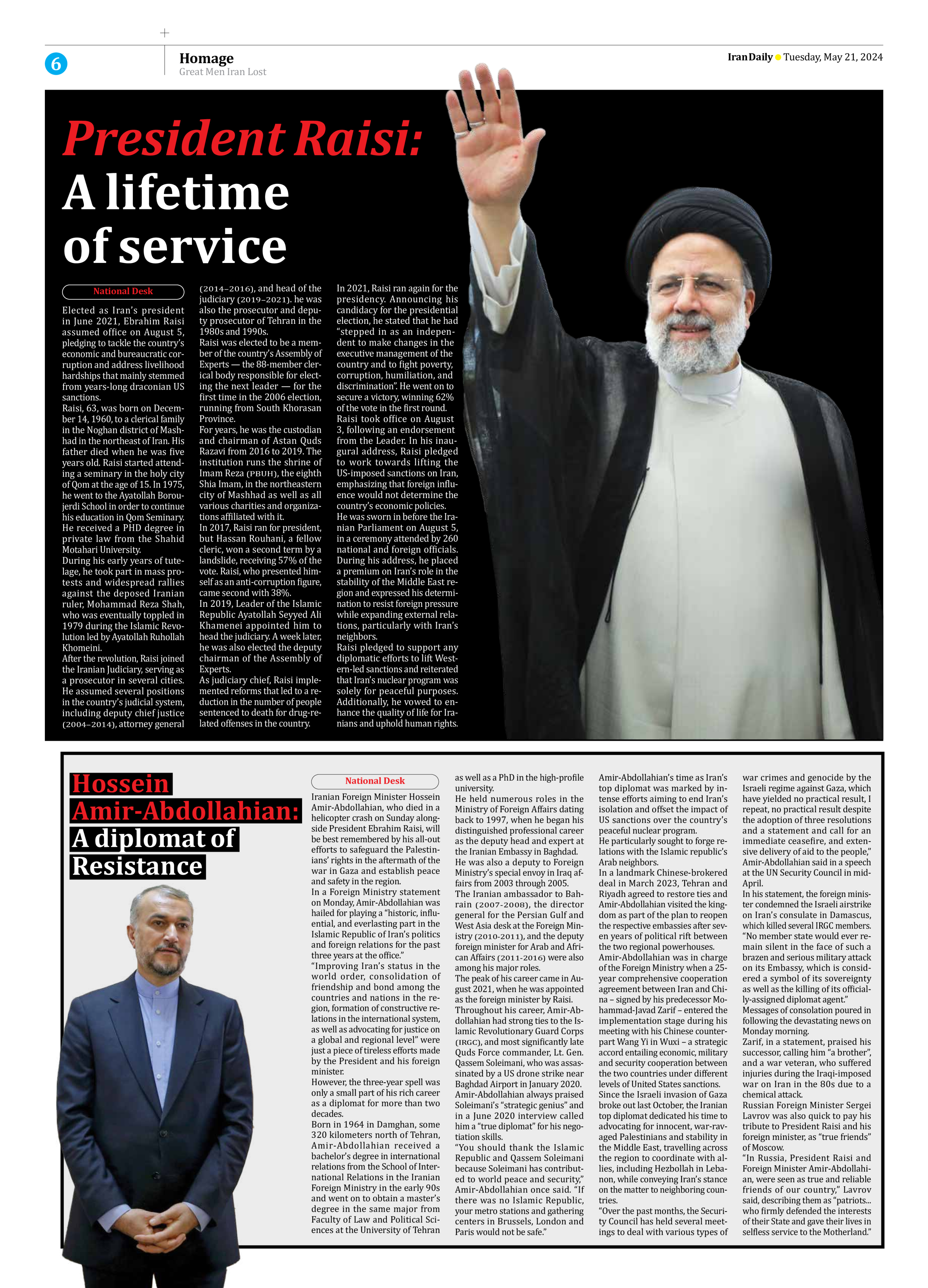
Copy in clipboard...
President Raisi:
A lifetime of service
Raisi, 63, was born on December 14, 1960, to a clerical family in the Noghan district of Mashhad in the northeast of Iran. His father died when he was five years old. Raisi started attending a seminary in the holy city of Qom at the age of 15. In 1975, he went to the Ayatollah Boroujerdi School in order to continue his education in Qom Seminary. He received a PHD degree in private law from the Shahid Motahari University.
During his early years of tutelage, he took part in mass protests and widespread rallies against the deposed Iranian ruler, Mohammad Reza Shah, who was eventually toppled in 1979 during the Islamic Revolution led by Ayatollah Ruhollah Khomeini.
After the revolution, Raisi joined the Iranian Judiciary, serving as a prosecutor in several cities. He assumed several positions in the country’s judicial system, including deputy chief justice (2004–2014), attorney general (2014–2016), and head of the judiciary (2019–2021). he was also the prosecutor and deputy prosecutor of Tehran in the 1980s and 1990s.
Raisi was elected to be a member of the country’s Assembly of Experts — the 88-member clerical body responsible for electing the next leader — for the first time in the 2006 election, running from South Khorasan Province.
For years, he was the custodian and chairman of Astan Quds Razavi from 2016 to 2019. The institution runs the shrine of Imam Reza (PBUH), the eighth Shia Imam, in the northeastern city of Mashhad as well as all various charities and organizations affiliated with it.
In 2017, Raisi ran for president, but Hassan Rouhani, a fellow cleric, won a second term by a landslide, receiving 57% of the vote. Raisi, who presented himself as an anti-corruption figure, came second with 38%.
In 2019, Leader of the Islamic Republic Ayatollah Seyyed Ali Khamenei appointed him to head the judiciary. A week later, he was also elected the deputy chairman of the Assembly of Experts.
As judiciary chief, Raisi implemented reforms that led to a reduction in the number of people sentenced to death for drug-related offenses in the country.
In 2021, Raisi ran again for the presidency. Announcing his candidacy for the presidential election, he stated that he had “stepped in as an independent to make changes in the executive management of the country and to fight poverty, corruption, humiliation, and discrimination”. He went on to secure a victory, winning 62% of the vote in the first round.
Raisi took office on August 3, following an endorsement from the Leader. In his inaugural address, Raisi pledged to work towards lifting the US-imposed sanctions on Iran, emphasizing that foreign influence would not determine the country’s economic policies.
He was sworn in before the Iranian Parliament on August 5, in a ceremony attended by 260 national and foreign officials. During his address, he placed a premium on Iran’s role in the stability of the Middle East region and expressed his determination to resist foreign pressure while expanding external relations, particularly with Iran’s neighbors.
Raisi pledged to support any diplomatic efforts to lift Western-led sanctions and reiterated that Iran’s nuclear program was solely for peaceful purposes. Additionally, he vowed to enhance the quality of life for Iranians and uphold human rights.







